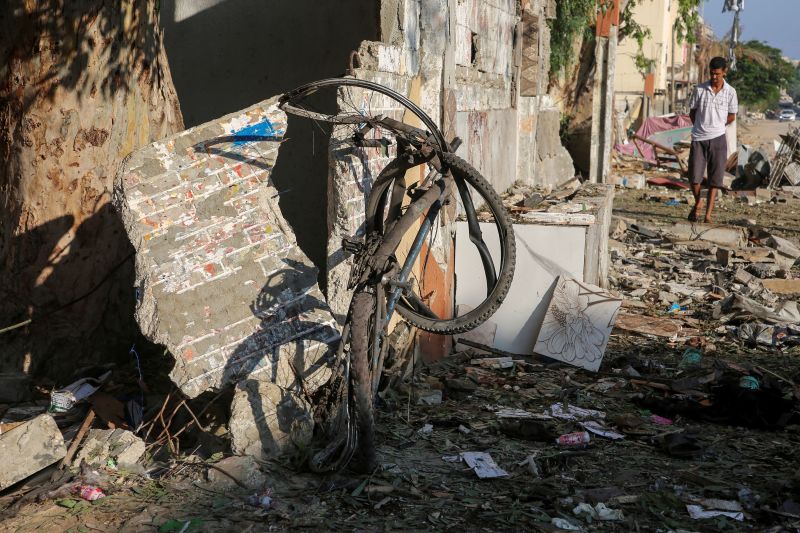
CNN Analysis Uncovers US-Made Munitions in Deadly Israeli Strike on School Complex near Khan Younis
The recent deadly Israeli strike on a school complex near Khan Younis, as reported by CNN, has raised significant concerns regarding the use of US-made munitions in conflicts. According to the CNN analysis, the munitions used in the strike were of American origin, highlighting the complexities and moral implications associated with the arms trade and military support provided by the United States.
The use of US-made munitions in international conflicts is not a new phenomenon. The United States is one of the largest arms exporters in the world, supplying weapons to various countries, including allies in the Middle East. While the US government asserts that arms sales are conducted with strict criteria and conditions to prevent misuse, incidents like the Israeli strike on the school complex underscore the challenges of ensuring that weapons are not used in violation of human rights and international law.
The targeting of a school complex in the Israeli strike near Khan Younis raises serious questions about the adherence to international humanitarian law and the protection of civilian lives during armed conflicts. Schools, as civilian structures, are protected under international law, and any attack on such facilities resulting in civilian casualties is a breach of the fundamental principles of humanitarian law. The use of US-made munitions in such attacks further complicates the ethical responsibilities of arms manufacturers and exporting countries in ensuring that their weapons are not used to commit human rights violations.
The CNN analysis highlighting the use of US-made munitions in the Israeli strike near Khan Younis also underscores the need for increased transparency and accountability in the arms trade. Countries that export weapons, including the United States, should ensure that rigorous monitoring mechanisms are in place to track the use of their weapons and prevent their misuse. Additionally, exporting countries have a responsibility to conduct thorough risk assessments before approving arms sales to foreign governments to minimize the likelihood of their weapons being used in unlawful attacks.
The deadly Israeli strike near Khan Younis serves as a stark reminder of the human cost of conflicts and the role of arms suppliers in fueling such violence. It is essential for governments and arms manufacturers to prioritize human rights and international humanitarian law in their arms export policies and practices. As the global community continues to grapple with the devastating impacts of armed conflicts, efforts to regulate the arms trade and hold accountable those responsible for human rights violations become increasingly crucial in promoting peace and security worldwide.
